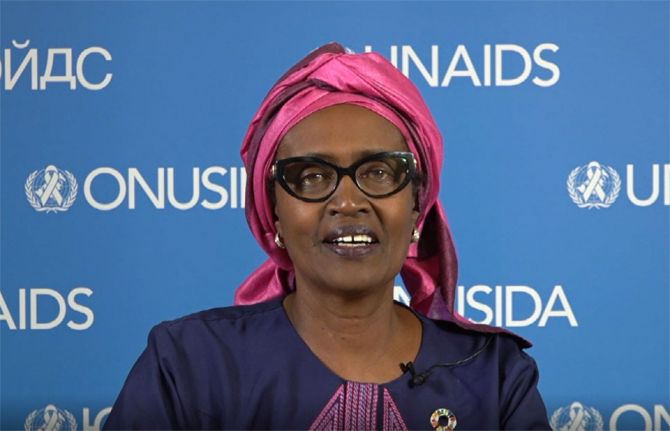

Opinion
UNAIDS Executive Director addresses first Arab Forum for Equality
30 May 2022
30 May 2022 30 May 2022The first Arab Forum for Equality, held in Amman on 30-31 May 2022, is organized by the ESCWA and the Pathfinders for Peaceful, Just and Inclusive Societies, and hosted by the Center on International Cooperation at the New York University. This is the inaugural meeting of the Forum, and the theme this year is “Towards inclusive youth employment in the Arab region”.
Following is UNAIDS Executive Director Winnie Byanyima’s address:
Greetings to all participants at this first and vital Arab Forum for Equality.
Thank you my dear sister, Rola Dashti, Executive Secretary of the United Nations Economic and Social Commission for Western Asia for inviting me.
I’ll share three lessons that we’ve learnt about inequality.
The first lesson is a worrying one: that inequality which was already extreme is being exacerbated even further.
In 2022, nearly half of humanity, 3.3 billion people are projected to be living below the poverty line of 5.50 USD a day. (Source: Oxfam)
New Oxfam estimates show that over a quarter of a billion more people could be pushed into extreme poverty in 2022.
A new billionaire has been created every 26 hours since the pandemic began. The world’s ten richest men have seen their fortunes double. (Oxfam)
A year and a half since the first doses of a COVID vaccine were delivered, 78% of people in the US are fully vaccinated, 69 % in Europe but still under 50% (46.26%) of people in the Arab region. (Our World in Data).
We also see huge inequalities within the Arab region. United Arab Emirates has reached 97% Covid vaccination. But it is a health emergency that Algeria is only at 15 % and Yemen at just 2.2%. (Our World in Data)
Since the onset of COVID19, wealth inequality has considerable increased in the Arab region, with the richest 10% of the population now controlling more than 80% of total regional wealth. (ESCWA)
Social protection expenditures among developed countries in the Arab States are just 4.2 per cent of GDP, lagging far behind the world average of 20 per cent. (ILO)
On average health expenditure across the Arab World is just 5% of GDP, nearly half that of the European Union (9.92%). (World Bank)
The second lesson is even more worrying: that we won’t be on track to overcome health or economic crises until inequalities come down.
These kinds of extreme, intersecting, inequalities increase the risks our societies face from pandemics such as AIDS and COVID-19. And we’ve seen with COVID just how quickly a health crisis is turned by inequalities into becoming a social, a political, an economic crisis.
The third lesson is a hopeful one, but that hope depends on action: inequalities are a political choice. Courageous leaders can tackle inequalities
We can close tax loopholes and tax holidays for companies.
We can go beyond the 15% tax rate agreement for all corporate taxation around the world, up to 25%.
We can ensure taxes are paid where economic activity happens.
We can increase investment in health, education and social protection.
We can reform laws and policies so that they help us reduce harm and risk, not worsen it.
We can change the global trade rules which kept life-saving vaccines locked up in the North
Inequality is a crisis but it is not fate, tackling it is within our hands.
UNAIDS
The Joint United Nations Programme on HIV/AIDS (UNAIDS) leads and inspires the world to achieve its shared vision of zero new HIV infections, zero discrimination and zero AIDS-related deaths. UNAIDS unites the efforts of 11 UN organizations—UNHCR, UNICEF, WFP, UNDP, UNFPA, UNODC, UN Women, ILO, UNESCO, WHO and the World Bank—and works closely with global and national partners towards ending the AIDS epidemic by 2030 as part of the Sustainable Development Goals. Learn more at unaids.org and connect with us on Facebook, Twitter, Instagram and YouTube.
Related
 Government ensures continuity of treatment in Malawi
Government ensures continuity of treatment in Malawi

10 February 2025


